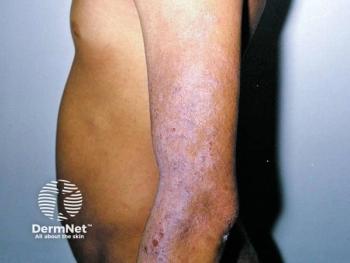
Teen acne correlates with reduced heart disease
Bristol, England ? Acne may not seem to have much positive to offer anyone, but a recent study supports the theory that male teenage acne may actually protect men from coronary heart disease in later life.
Bristol, England - Acne may not seem to have much positive to offer anyone, but a recent study supports the theory that male teenage acne may actually protect men from coronary heart disease in later life.
That was the connection indicated in a study of more than 11,000 men who had undergone health examinations while students at Glasgow University between 1948 and 1968.
They represented about half of the male student population who attended the university during that 20-year period. Information was collected on the participants' socio-demographic characteristics, health behaviors, medical histories - including history of acne, height, weight and blood pressure - and additional risk factors.
The study's lead investigator, Bruna Galobardes, M.D., is an epidemiologist from University of Bristol in Bristol, England. Additional participants in the study were the Centre for Public Health Research, Massey University, New Zealand, and the Department of Epidemiology and Public Health, Queen's University of Belfast, Belfast, Northern Ireland.
The study compared the data on the men's acne reported from their student days with the subsequent occurrence of coronary heart disease.
Dr. Galobardes tells Dermatology Times, "We found that a history of acne in young adulthood was associated with lower overall cardiovascular disease and coronary heart disease mortality."
Acne and androgen link
While more than 2,000 of the men (18 percent) had a reported history of acne, the severity of their condition was not assessed, so whether only severe acne is related to the adult cardiovascular mortality risk wasn't determined.
The mortality due to coronary heart disease in men who had teen-age acne was approximately 30 percent lower than in the men who did not have a similar history.
Androgen plays a key role in the development of acne. Higher androgen levels are also marked by greater sexual activity - another factor found to protect men from coronary heart disease.
Puzzling contradiction needs further study
Interestingly, higher androgen levels are also associated with male pattern baldness, which itself is linked to higher risks of coronary heart disease. Dr. Galobardes says the apparent contradiction is puzzling.
"What is interesting is that studies seem to be consistent in finding the testosterone-related measures of acne, frequency of sexual intercourse and frequency of shaving - all of which are markers of higher levels of testosterone - protect from cardiovascular disease with the exception of male pattern baldness, which carries a consistently higher risk of coronary heart disease.
"We plan to look into this more. There is a potential link on how the androgen receptor might react in different places of the body. There is some inconsistency here, and we have to try to explain that."
Dr. Galobardes explains how researchers believe androgen works in reducing the cardiovascular risks, although she noted that not all studies are consistent. Researchers will have to analyze androgen-related findings from a variety of sources, although it is believed that androgens may affect the fat levels and cholesterol in the blood, as well as cause a decrease in the formation of arterial wall plaques.
Although Galobardes' study supports previous research, it also offers one very important difference, she says - the fact that previous studies done on androgen levels' correlation to heart disease were conducted on adults.
"What is interesting is that in our study we collected measures that were done when the students were 20 years old. So we were reporting on the effect of androgen levels at an earlier age - that's why it's more interesting. That indicates that we should start looking at these effects at a much earlier age and not wait until they're adults - because it might be too late then."
Possible paradox quashed
The study also considered a number of confounding factors that researchers wanted to make sure did not relate to the lower risk of coronary heart disease.
Newsletter
Like what you’re reading? Subscribe to Dermatology Times for weekly updates on therapies, innovations, and real-world practice tips.












